
Picea omorika 'Bruns Pendula' Narrow Weeping Serbian Spruce Kigi Nursery
Discuss Picea omorika 'Bruns' with other Shoot members Read more ShootChecker™ Get the Right Plant, Right Place Picea omorika 'Bruns' (Serbian spruce 'Bruns') Select a garden project to check if this is the right plant for the garden conditions. Garden project. Update garden condition details.

Picea omorika ' Bruns Pendula ' Narrow Weeping Serbian Spruce Kigi
Picea omorika, common name Pančić spruce or Serbian spruce (Serbian: Панчићева оморика, Pančićeva omorika, pronounced [pâːnt͡ʃit͡ɕɛv̞a ɔmɔ̌rika]), is a species of coniferous tree endemic to the Drina River valley in western Serbia, and eastern Bosnia and Herzegovina, with a total range of only about 60 ha, at 800-1,600 m (2,625-5,249 ft) altitude.

Świerk serbski (PICEA omorika) 'Pendula Bruns' Made in Forest
'Pendula Bruns' - tree, weeping, extremely narrow, 7ft (2.1 m) tall and 2 ft (0.6 m) wide in 10 years, foliage silvery blue-green 'Pimoko' - dwarf shrub, dense, thickly branched, rounded globose form; omorika: the Balkan vernacular name for spruce (Jacobson, 1996).
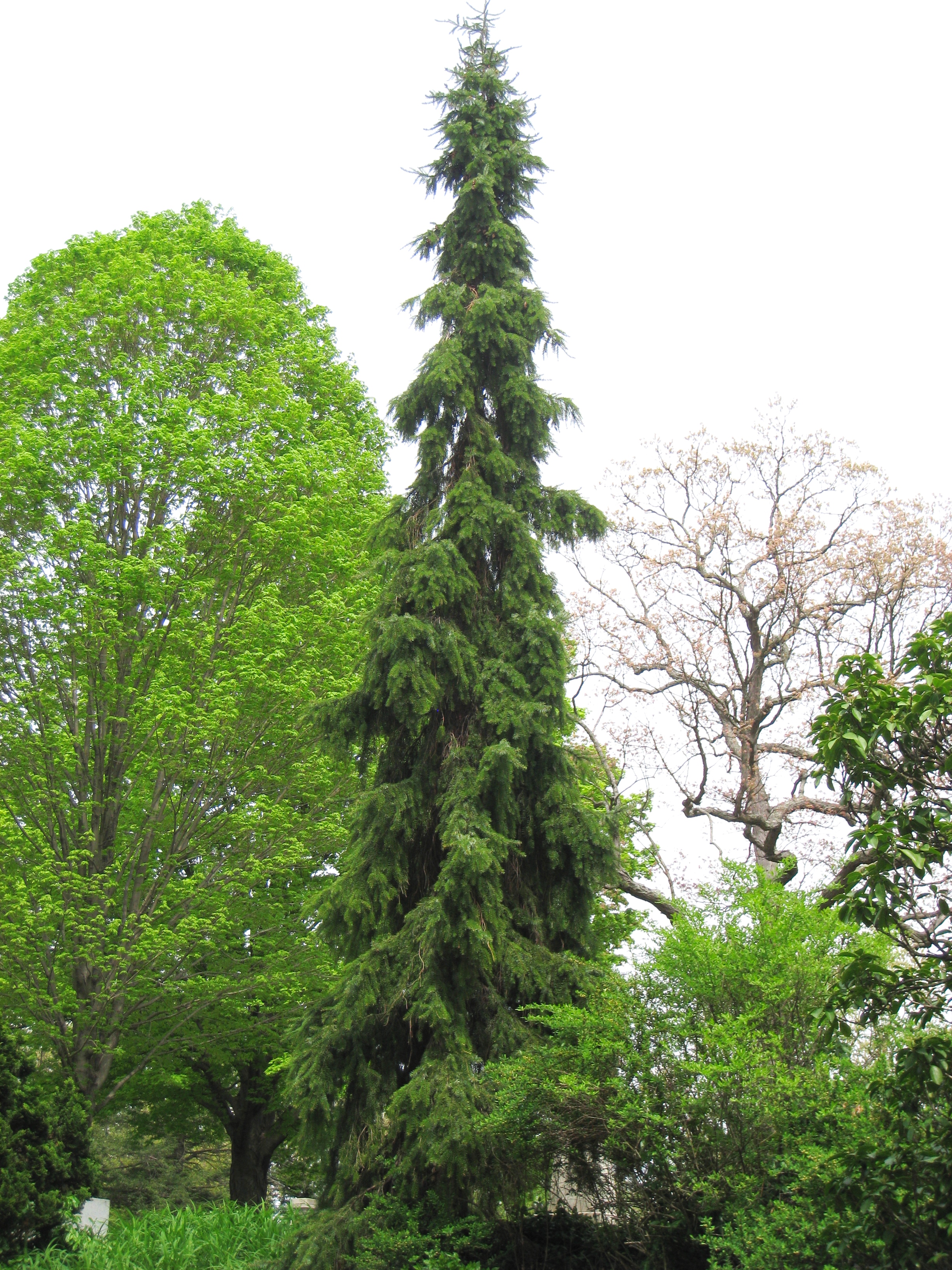
Picea omorika 'Bruns' Plants Direct Victoria, BC
Picea omorika 'Bruns' / Bruns Serbian Spruce Tree: Growing zones 4-8. Grows to a height of 30ft. and a spread of 8ft.. The Bruns Serbian Spruce has a tall, slender, pyramidal form that makes it very graceful in the landscape. It prefers full sun and well-drained soil but tolerates heat and wind.

FilePicea omorika PAN.jpg Wikimedia Commons
'Bruns' is slow growing, narrowly upright, and uniform with bicolor foliage. Picea omorika (Serbian spruce) and Oriental spruce (Picea orientalis) are lesser known relatives of the widely planted (overused?) Norway spruce. Richard L. Bitner in his "Conifers for Gardens" lists orientalis and omorika as superior to its European cousin.

Picea omorika 'Pendula Bruns' Landscape Plants Oregon State University
Picea omorika 'Bruns' Picea omorika 'Bruns' Common name: Bruns Serbian Spruce. Pronunciation: PI-see-a o-mor-E-ka . Family: Pinaceae. Genus: Picea. Type: Conifer. Native to (or naturalized in) Oregon: No. Conifer, evergreen tree, very narrow, 14 ft (4 m) tall and 4 ft (1.2 m) wide in 10 years, foliage light green and light blue.

Picea omorika bruns young cone (1024×779) Sublime Garden Design
Conifer, evergreen tree, very narrow, strict weeping, size in 10 years listed as 7ft (2.1 m) tall and 2 ft (0.6 m) wide, branches grow down close to the trunk, the terminal leader grows straight without staking at a rate of 12-18 inches (30-45 cm) per year.

Picea omorika Serbian spruce Van den Berk Nurseries
A sight to behold, Picea omorika 'Pendula Bruns' (Serbian Spruce) is a very narrow, columnar, evergreen tree adorned with a strong central leader and strictly weeping branches that cascade down gracefully and hug the trunk. It is clothed in a lush foliage of silvery, blue-green needles. A moderate grower, 6-12 in. per year (15-30 cm), this Weeping Serbian Spruce is a breathtaking beauty.
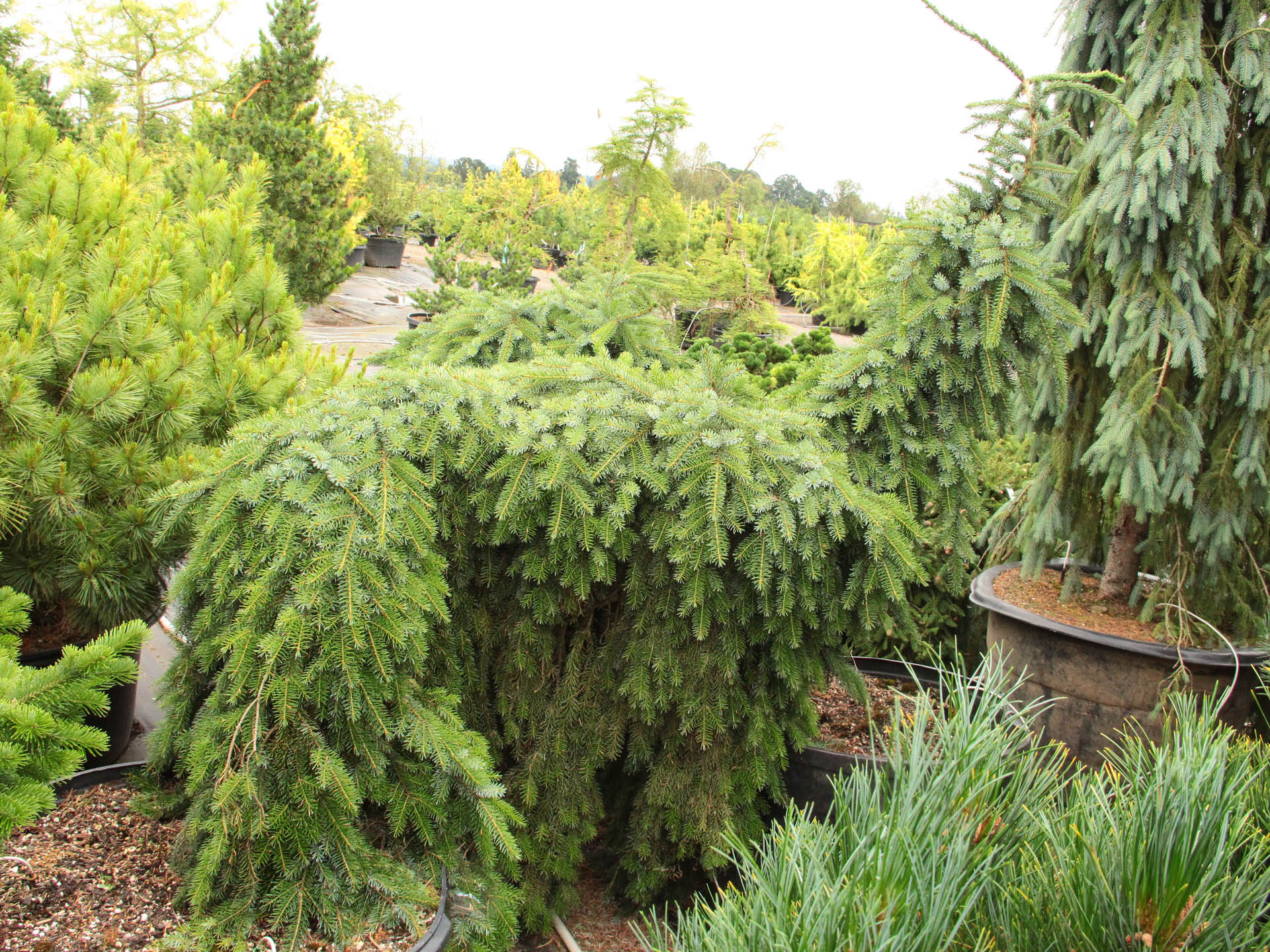
Buy Picea omorika 'Pendula Bruns' Specimen 1631 Conifer Kingdom
Bruns Weeping Serbian Spruce Picea omorika 'Pendula Bruns' is a spire-like focal point has the narrowest silhouette of all the large, upright Serbian Spruce cultivars. Its strictly weeping branches boast two-tone needles that are deep, greenish blue on top and silvery beneath. A selection from Bruns Nursery in Germany. Garden Size: 15'H x 3'W Intermediate: 6-12″/year Narrow Upright […]
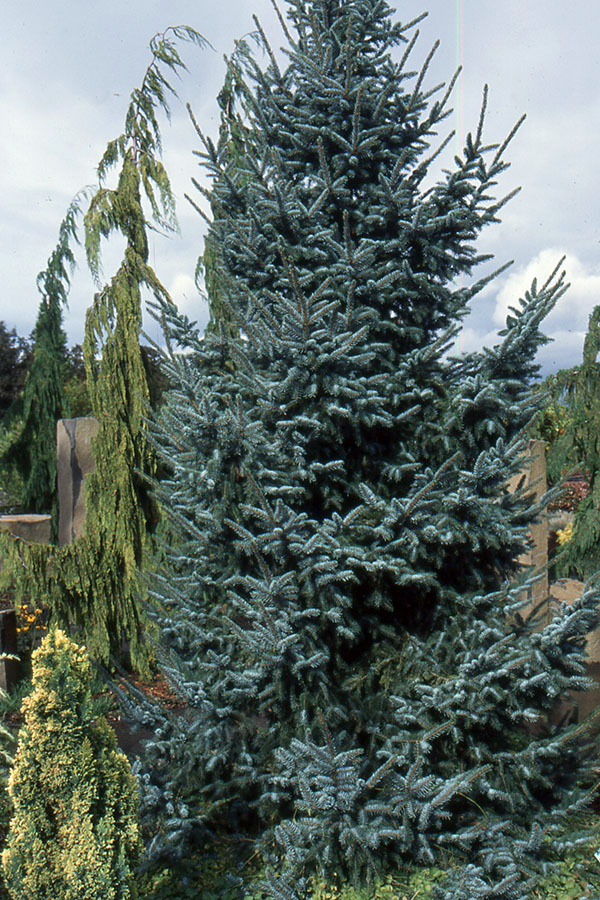
Picea omorika 'Bruns' Landscape Plants Oregon State University
Picea omorika 'Pendula Bruns' Serbian Spruce. Plant Size: #1 Container #3 Container #7, 24-30" Plant Size Information $ 54.99. Add to cart. Description Additional information Description. Very narrow and possibly the most pendulous upright Serbian spruce, this weeping tree develops a leader that grows straight without staking. Branches hang.

Photo 57092 Picea omorika 'Pendula Bruns' plant lust
Noteworthy Characteristics. Picea omorika, commonly called Serbian spruce, is an evergreen conifer that is native to limestone soils in the upper Drina River Valley in western Serbia and eastern Bosnia and Herzegovina.It typically grows to 50-60' tall in cultivation, but will rise to as much as 100' tall over time in its native habitat.

How to Grow and Care for Serbian Spruce Tree Evergreen landscape
Bruns Serbian Spruce, A beautifully upright, narrow, pyramidal form with graceful branching and dense foliage. The uniform habit and deep green needles with sil. Picea omorika 'Bruns' Pronunciation: PY-see-uh. SKU #06487. USDA Zone. 4-8. Your climate might be too cold for this plant: Change Location. Pre-Order for Spring Find In Store.

Picea omorika ' Bruns Pendula ' Narrow Weeping Serbian Spruce Kigi
Bruns Serbian Spruce. Picea omorika 'Bruns' Planted 2021. This slow growing spruce is narrow with a pyramidal form and can reach 30 feet tall. Once established is drought tolerant. Its needles are blue-green with 2 white stripes. Height Width Zone Growth Rate Water Use; 30 ft. 15 ft. 4-8:
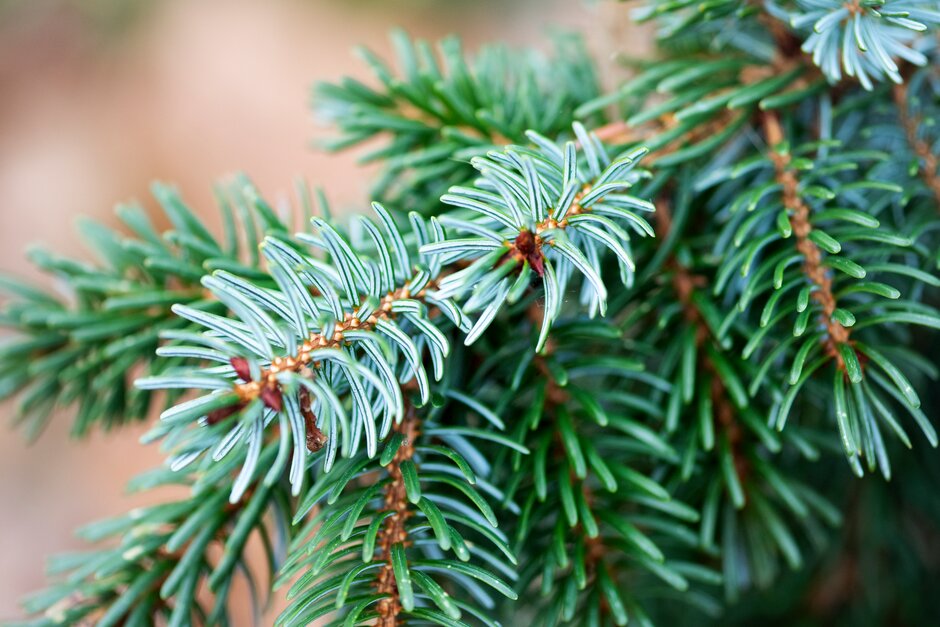
Picea omorika 'Pendula Bruns' /RHS Gardening
A very narrow, weeping form of Serbian Spruce. Great for nearly all landscapes, large or small. As the leader wanders up towards the sky, all side branches hang straight down against the trunk. Needles are a multi-toned with silver, green and blue. Originated at Bruns Nursery in Germany.
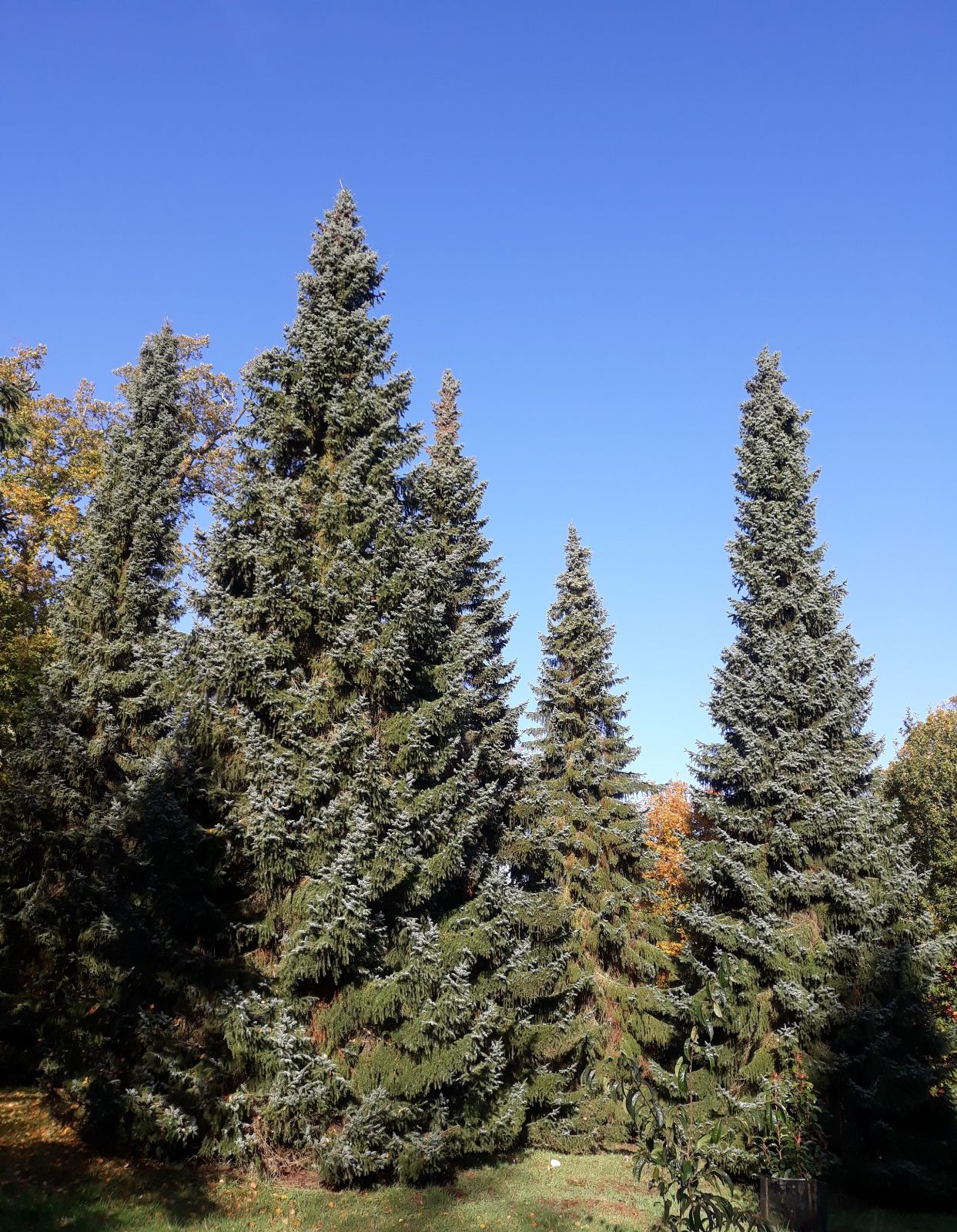
Picea omorika Trees and Shrubs Online
Picea omorika Serbian spruce. WHZ. WHZ 5a . Distribution. A relatively restricted area in the Tara mountains on the central or upper course of the Drina. On weathered limestone soils on humid sites which are cool in summer and with much snow in winter, in altitudes of around 700 to 1500 m.. Bruns Pflanzen-Export GmbH & Co.KG, Johann-Bruns.

Picea omorika (Nana, Serbian Spruce) North Carolina Extension
When you are at the stage of seeking a source for Picea omorika 'Pendula Bruns,. 2007) says of Picea omorika that it "should be planted in full sun on well-drained soil. It tolerates heat, humidity, and wind, and is not damaged by snow. Many consider it a good choice for urban landscapes because it will tolerate atmosphere pollution.